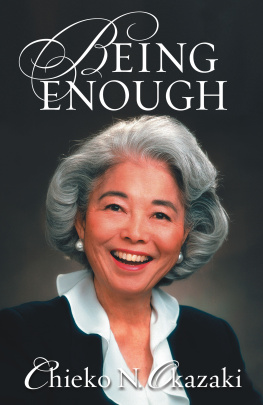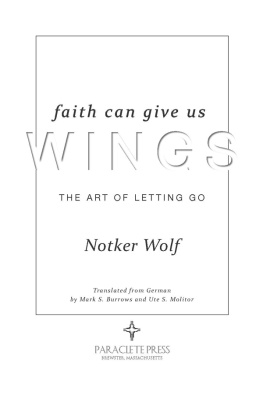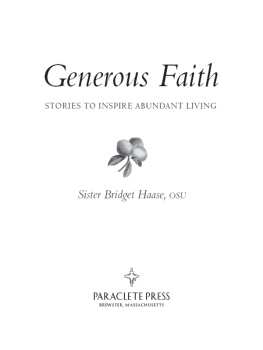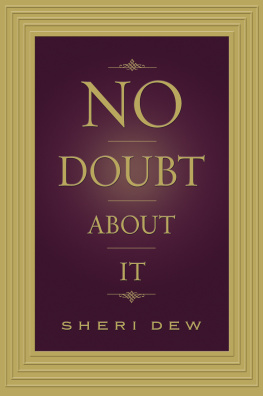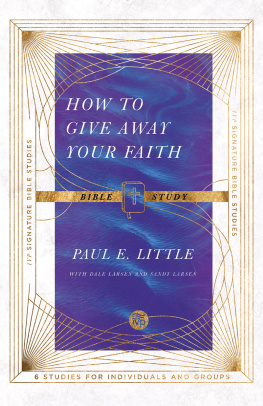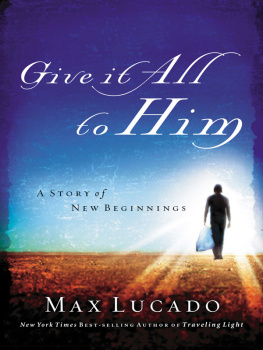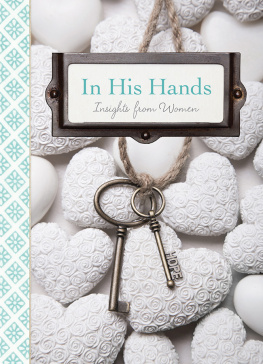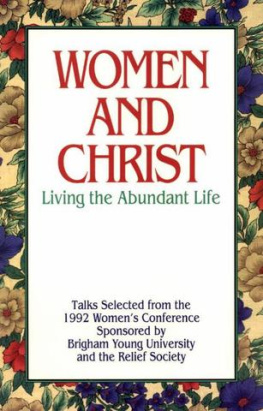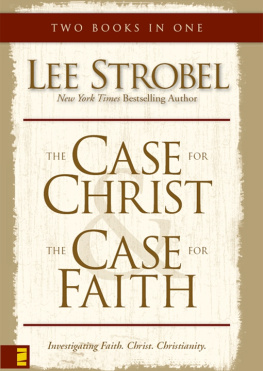Being Enough
At a challenging moment in Church history, the Lord gave this inspiring commandment to the Saints: Arise and shine forth, that thy light may be a standard for all nations (D&C 115:5). What I would like to focus on are those moments just before arising and shining forth, when your light feels pretty dim and you dont feel much like a standard of anything. I want to do this because I think we need to understand how brightly our light shines in comparison with our moments of weariness and discouragement. All too often we compare our light with our very brightest moments or with someone elses brightest moments, and it makes the darkness deeper around us.
In a day when there seem to be almost overwhelming demands on us to do more, to do it faster and better, and to be more things to more people, I want to explore how much oil we need in our lamps. I want to explore being enough.
For me, this is a much needed message of hope, for it is easy to be discouraged in the face of demands that always escalate, that never diminish. And so, there is great hope and encouragement and comfort in the message: Who you are is enough. What you have to give is enough. Your best is sufficient. Your light shines enough to be a standard.
Lets begin with a story that on the surface seems to be about poverty but is actually about abundance. Its important to understand the context. It may have been Jesus last public sermon. He had entered Jerusalem on the back of a donkey while the multitude sang praises to God and spread their cloaks and palm fronds over his path. He went into the temple and drove out the merchants, then he taught in the temple, surrounded by people who clustered close, famished for the word of life, but also surrounded by the sharks of the priests, the teachers, and the Sadducees. His enemies tried to trick him by asking him whether baptisms performed by John the Baptist were valid, whether they should pay taxes, and whether there would be a resurrection from the dead. In response, Jesus told them a parable of the evil-doers who rejected each messenger from the absent king and finally, when he sent his own son, killed him. Jesus warned that the temple would be destroyed and that a time of persecution was coming.
In the midst of these turbulent events and as his own life was rapidly drawing to a close, Jesus looked up, and saw the rich men casting their gifts into the treasury. And he saw also a certain poor widow casting in thither two mites. And he said, Of a truth I say unto you, that this poor widow hath cast in more than they all: For all these have of their abundance cast in unto the offerings of God: but she of her penury hath cast in all the living that she had (Luke 21:14).
In drawing attention to the contrast between the rich givers and the poor widow, Jesus was also pointing out the difference between those who listened to him willingly and those who listened only to find fault, between those who wanted to kill him and those who found in him great hope. He was stressing the difference between appearance and realityidentifying hypocrisy where he encountered it and calling on the people to turn to God.
We usually praise the widow for her sacrifice: that she gave everything, putting her own life in jeopardy so she could make a contribution. I see in Jesus praise of this poor widow a joyous acceptance, even a celebration of her gift. He attested that her offering was not only enough, but was incredibly generous, unbelievably abundant. What she had to give was enough and more than enough.
With that in mind, I would like you to consider three commodities that we often think we dont have enough of: power, love, and time. Before you do, however, I want to point out that we sometimes confuse having enough with being enough. Ill come back at the end of this chapter to the concept of being enough, but my hope is that if I can persuade you that you have enough power, love, and time, it will be easier for you to believe that you are enough.
Enough Power
Lets talk first about having enough power. Sometimes it startles women to be involved in a discussion of power, but lets face it: when you feel powerless as a mother to protect your children, when you feel powerless as an employee to command a living wage, when you feel powerless as a wife to improve your marriage, when you feel powerless at church or in the community to have a voicethen its pretty easy to feel that you are not enough.
In Jewish society, powerlessness was practically the middle name of widows. They were defined by what they didnt havea husband. Furthermore, Jesus could tell at a glance that this woman was a poor widow. So she was defined by two things she didnt have: she didnt have money and she didnt have a husband. Jeni and Richard Holzapfel have described the plight of the widow in those times:
Most [widows] lived a precarious existence since their major source of protection and identity, their husband, was dead. While sons, other male relatives, or family wealth could provide a measure of security, widows were traditionally considered subjects of special moral concern because of their generally defenseless legal and financial position in ancient society.... A widow was not only disadvantaged by poverty but also by her vulnerable status as an unmarried woman, thus rendering her practically invisible in the legal, political, social, and religious eyes of first-century Jewish society.
I think many women can relate to this view of being defined as someone without. If you are single, you are a woman without a husband. If you are widowed, like me, you are a woman without a companion. If you are divorced, you are a woman without a celestial marriage. If you are married to a less active member or to a husband who is not a member of the Church, then you are a woman without priesthood in your home. If you do not have children, you are a woman without motherhood. If you dont have the right number of children or the right kind of children or children who are properly behaved, then you are a woman without something that all Mormon women everywhere are somehow, magically, supposed to acquire.
If you are employed outside the home, you are without quantity time to spend with your children. If you are not employed outside the home, you are without some of the skills, social connections, professional development, and personal satisfactions that come from those experiences. And lets not even get started on the situation of being without enough money! Every TV commercial is a reminder of cars you dont have, furniture you are lacking, food you are not eating, and clothes you dont have in your closet.
Lets look again at the poverty of that widow Jesus saw. She cast two mites into the treasury. They were the smallest coins in circulation in Palestine, and their real name was lepta. The lepton was a bronze coin worth 1/400 of a shekelbetween an eighth and a fourth of a penny. Two lepta were not enough to pay for a simple meal.
So this woman, who could not buy herself a bowl of stew or a piece of bread and cheese, was still bringing what she had to the Lords temple. But remember what Jesus said about her? This poor widow hath cast more in, than all they which have cast into the treasury: For all they did cast in of their abundance; but she of her want did cast in all that she had, even all her living (Mark 12:4344).
So which, of the two, manifested generosity? Who really had abundance? It was this woman upon whom the world looked as a woman without, a woman who did not have enough, a woman who basically had nothing at all. Jesus was probably the only person in all of Jerusalem who looked at this woman and saw that she had given with abundanceand fortunately, his is really the only opinion that counts.
We dont know how the widow felt. We dont know if she lingered to hear Jesus speak or if she hurried away, hoping nobody would notice her. We dont know if she ever heard the message of hope and empowerment in the gospel. Golda Meir, the first woman prime minister of Israel, said that she spent whole years feeling stretched so thin and so inadequate to the tasks before her as a mother, wife, national leader, and policy maker that she went to bed every night asking herself, Who or what have I neglected today?
Next page
